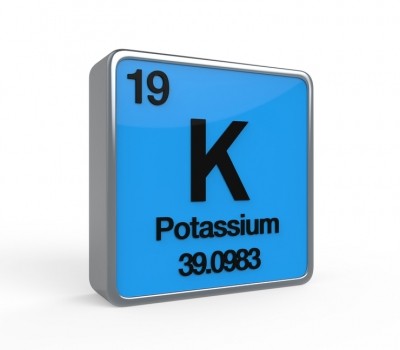Magnesium right on time as role in body rhythms is recognised

The revelation may also point towards magnesium as a gatekeeper of cellular energy balance and expenditure over the daily cycle.
The study pinpointed the nutrient magnesium as a determinant of how cells keep to a schedule helping them adjust to the natural environmental cycle of day and night, also known as circadian rhythms.
With this discovery, a new direction of research involving circadian rhythms hormone release, body temperature and other important bodily functions in people is possible.
What scientists don’t know is how the relevant genes initiate biochemical mechanisms that enable the circadian regulation of cell biology.
Human cells, algae & fungi

That was the objective for researchers at the University of Edinburgh and the MRC Laboratory for Molecular Biology in Cambridge.
The team began with experiments with human cells, algae, and fungi. In all test subjects, the levels of magnesium increased and decreased in line with the day’s daily cycle.
Magnesium levels were also linked with the rate of metabolism in cells. The researchers predicted that the cells ability to convert nutrients into energy would be low when magnesium levels were low as protein synthesis is one of the most energetically expensive processes that cells undertake.
"Although the clinical relevance of magnesium in various tissues is beginning to garner more attention, how magnesium regulates our body's internal clock and metabolism has simply not been considered before,” said senior author, Dr John O'Neill of the MRC Laboratory of Molecular Biology in Cambridge.
“The new discovery could lead to a whole range of benefits spanning human health to agricultural productivity."
Mechanisms of action

In trying to explain their observations, the team believed that the data supported a model where the cells specifically controlled the magnesium transporters in the plasma membrane that corresponded to the rhythmic magnesium changes.
These changes dictated the energy demands and protein production of human cells during the day, as well as the decreased energy production in photosynthetic cells at night.
Equally, the magnesium levels were controlled within a feedback loop that was able to regulate the genes controlling the rhythms.
The team believed the feedback loop was acting as a ‘meta-regulator’ to include metabolic rhythms and other feedback models that were involved in cellular timekeeping.
The researchers noted that that the magnesium rhythms observed in the algae occur in constant darkness. They thought that it might be due to an uncharacterised non-transcriptional clock mechanism that also drives certain rhythms in inactive algae cells.
"Internal clocks are fundamental to all living things. They influence many aspects of health and disease in our own bodies, but equally in crop plants and micro-organisms,” said Dr Gerben van Ooijen, of the University of Edinburgh's School of Biological Sciences, who also led the study.
“It is now essential to find out how these fundamentally novel observations translate to whole tissue or organisms, to make us better equipped to influence them in complex organisms for future medical and agricultural purposes."
Source: Nature
Published online ahead of print, doi:10.1038/nature17407
“Daily magnesium fluxes regulate cellular timekeeping and energy balance.”
Authors: Kevin A. Feeney, Louise L. Hansen, Marrit Putker, Consuelo Olivares-Yañez, Jason Day, Lorna Eades, Luis Larrondo, Nathaniel P. Hoyle, John S. O’Neill & Gerben van Ooijen.
















